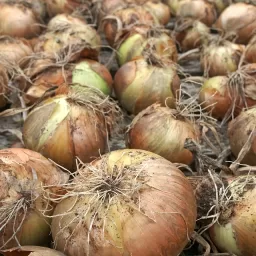Step Ten: A Second Weeding of the Garden
A survey of the garden I just weeded oddly created images of the step ten efforts I have recently made in my recovery program in which I had “continued to take personal inventory and when (I) was wrong, promptly admitted it.”
“Step ten is where we continue to inventory our behavior and thinking,” according to the Adult Children of Alcoholics textbook (World Service Organization, 2006, p. 251). “With this step, we continue to let go of control and expose our denial about the effects of being raised in a dysfunctional home. We learn to take a balanced view of our behavior.”
In many ways, I consider it a “second time around,” the first having been step four’s original “searching and fearless moral inventory of ourselves.” Did I miss anything during that first sweep and have my weeds regrown since that time? If so, what does this imply? Well, many things.
First and foremost, it signifies that I am human. I am not perfect. And it is not realistic to be able to identify all of my flaws, wrongs, and defects during a single survey of my life.
During the original search, I may not have been as thorough ss I thought I had been-nor may I have been able to.
I may not have even known or understood that I committed such wrongs, especially at the time that they occurred, because of a lack of maturity and therefore an understanding of them. Clouded and distorted by the disease of dysfunction, I could certainly not have seen through or even connected with my actions at times.
Finally, they may not have all been immediately visible. As the years unfold, many may have been beyond memory’s reach and with my current life’s focus, relegated to the “least important” file. But as I continue to identify wrongs, others slowly emerge from hidden obscurity.
I didn’t see those weeds under that bush the first around, I think now. And there are those behind the fence. I don’t even know if I can get to them.
My garden survey sheds light on an important aspect of twelve-step recovery-namely, that it is not necessarily linear and without pitfalls in nature.
“We are trying out new ways of thinking and acting, but we must be diligent if we are to follow through our recovery process,” according to the Adult Children of Alcoholics textbook (ibid, p. 252). “We will not change overnight, and the tendency to pick up old habits is tempting at times.”
An Al-Anon member in the program’s Courage to Change text (Al-Anon Family Group Headquarters, Inc., 1992, p. 328) points out the process’s ultimate benefit.
“Step ten reminds me to be honest with myself, acknowledging my progress, admitting my mistakes, and recognizing opportunities to grow today,” she says.
Part of my own growth stems from the understanding that my wrong turns often derailed others-that is, they were not necessarily isolated events only involving myself, but instead caused harms, hurts, and consequences to others. All actions, whether well- or ill-intended, have origins. If they begin with me, then only I can take responsibility for them.
Denying my imperfection and believing that I am somehow the exception of perfection is in and of itself an expression of that imperfection.
“When I admit the errors, I take responsibility for my actions,” Courage to Change advises (ibid, p. 144). “I free myself from the burden of an embarrassing secret, and I move closer to accepting my imperfection. It becomes much easier to accept myself as I truly am, mistakes and all.”
In order to balance my step ten process, I also need to factor in my strengths and positive qualities. They can include some of the “goods” I may have recently demonstrated, such as patience, understanding, and forgiveness, as well as the greater ones, like the inspiration and help my writing and teaching career have given to others.
Like the weeding of my garden, will my step ten efforts ever be complete? I doubt it. As long as I am alive in finite, imperfect physical form I will make mistakes. I will have good days and bad days. I will weaken and be tempted, and sometimes re-grasp an old habit. But my sheer awareness of them is, in and of itself, a demonstration of positive progress, and program tools and strengths enable me to stop myself and continue toward my recovery goals.
“Step ten invites me to regularly keep my finger on my spiritual pulse so I can cooperate with God in my spiritual growth and healing,” advises another Al-Anon text Hope for Today (Al-Anon Family Group Headquarters, Inc., 2002, p. 173). “It says that if I do or say something wrong, I can stop, turn around, and do something different now. Step ten invites me to grow up, to be responsible, and to make amends… I take step ten because I want to be the best ‘me’ I can be.”
Will my garden ever be weed-free? I don’t think so. Like me, it is a work-in-progress, and as long as I am alive, I will be!
Article Sources:
Adult Children of Alcoholics. Torrance, California: World Service Organization, 2006.
Courage to Change. Virginia Beach, Virginia: Al-Anon Family Group Headquarters, Inc., 1992.
Hope for Today. Virginia Beach, Virginia: Al-Anon Family Group Headquarters, Inc., 2002.
weed
#Step #Ten #Weeding #Garden
Will be pleased to have you visit my pages on social networking .
Facebook page here.
Twitter account is here.
Linkedin account here
Post byBedewy for info askme VISIT GAHZLY





